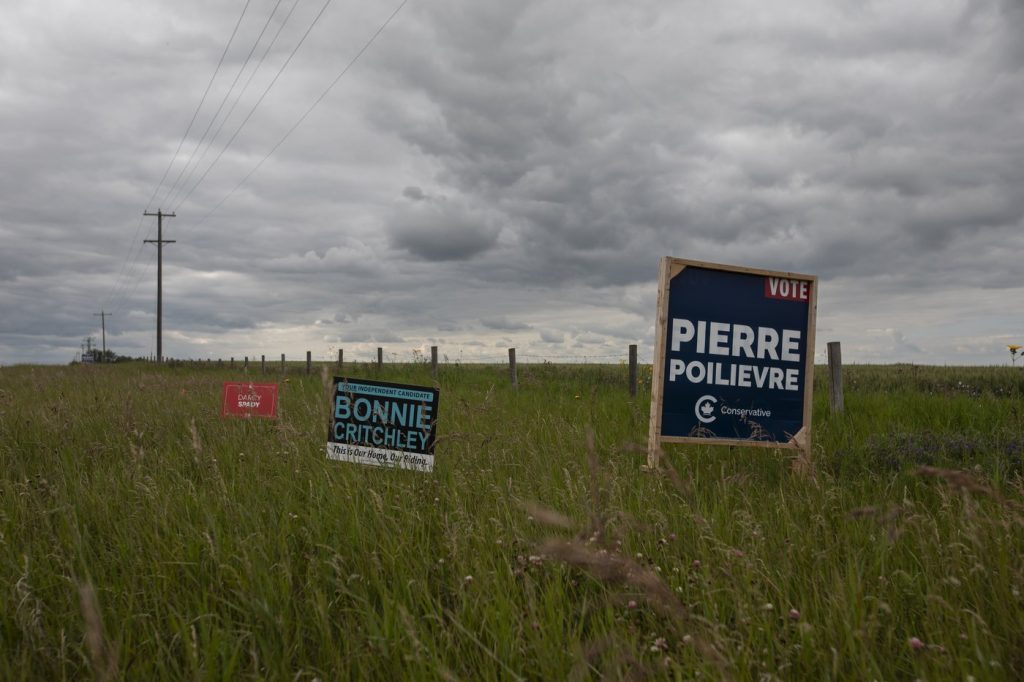Advance polls open today in the federal byelection for Alberta’s Battle River–Crowfoot, launching what Elections Canada describes as an unprecedented electoral event.
For the first time in Canadian federal history, voters are required to use a blank ballot, handwriting the name of their preferred candidate rather than selecting from a pre-printed list. This change comes in response to the record-breaking 214 candidates contesting the rural riding—many of whom are affiliated with the Longest Ballot Committee, a protest group aiming to spotlight the need for electoral reform.
The byelection was triggered in June after Conservative MP Damien Kurek, who won the seat in April’s general election, resigned to allow Conservative Leader Pierre Poilievre a chance to return to Parliament. Poilievre had lost his longtime seat in the Ottawa riding of Carleton.
He now faces Liberal candidate Darcy Spady, the NDP’s Katherine Swampy, and Independent Bonnie Critchley, among others. Despite the crowd, all eyes remain on Poilievre, who has publicly criticized the Longest Ballot Committee’s tactics.
“I don’t have a problem with anyone running for office, even if they’re unknown or not wealthy,” he said at a Calgary press conference on Thursday. “But that’s not what these people are doing. They’re overwhelming the ballot to create confusion and make voting harder—especially for seniors and those with vision impairments.”
While Elections Canada has previously used two-column adapted ballots in contests with a high number of candidates, this time, due to space limitations, the agency opted for a blank ballot system. Voters will need to write in the full name of their chosen candidate, although minor spelling errors will not invalidate the vote, clarified agency spokesperson Matthew McKenna.
However, writing only a party name will not be sufficient for the vote to count. To aid voters, each polling station will provide a large-print list of candidates, along with tools such as magnifiers and large-grip pencils.
Poll workers have received additional training to support electors with the new voting method, and a different ballot-counting process will be in place.
Voting day is scheduled for August 18, and regardless of the outcome, the race is already one for the history books.

